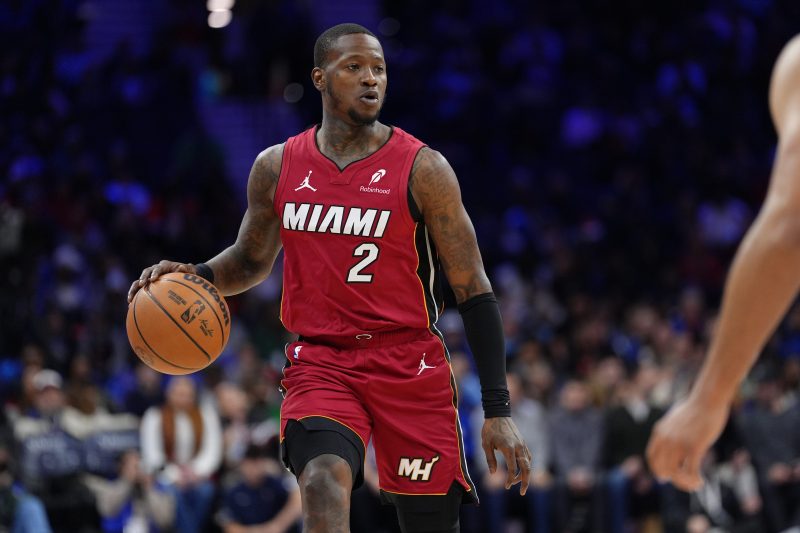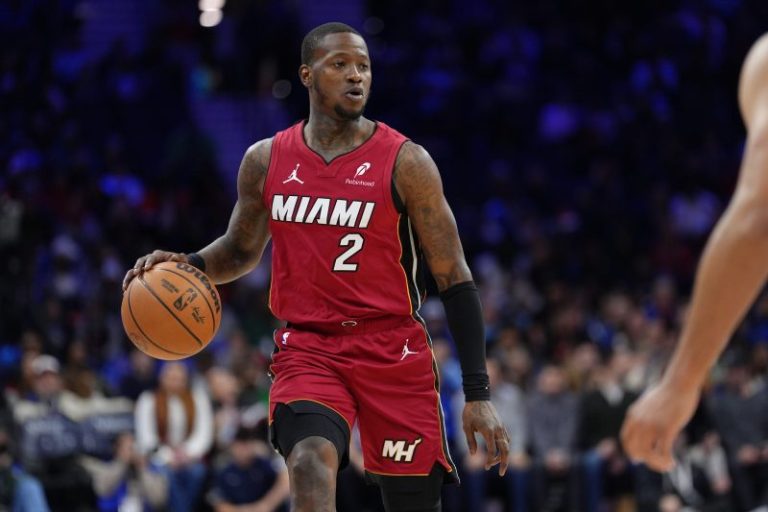
The NBA did not disclose information about irregular betting activity around Terry Rozier’s performance during a March 23, 2023 game to the Miami Heat prior to the team’s January 2024 trade to acquire him from the Charlotte Hornets.
The Heat had no knowledge about the suspicious betting activity raised in March 2023 by integrity monitoring services, nor did the Heat have knowledge about the subsequent federal investigation into Rozier until both became public in January 2025, two people close to the matter told USA TODAY Sports on Friday, Oct. 24.
The people spoke under condition of anonymity because they were not authorized to publicly discuss details of the matter.
Rozier was arrested Thursday, Oct. 23 for his alleged role in an insider sports-betting scheme. He is accused of manipulating his performance during a March 23, 2023 NBA game when he was a member of the Hornets, to benefit illegal betting.
This raises questions about whether Miami might be entitled to file a grievance or seek compensation of some kind. Presumably, a team would be cautious — if not entirely avoidant — about trading assets for a player whose performance had previously been flagged by integrity monitoring services.
On Jan. 30, 2025 — the day the Heat first learned that the U.S. Attorney’s Office for the Eastern District of New York opened an investigation into Rozier — NBA spokesman Mike Bass had told USA TODAY Sports that the league first became aware of the irregular betting activity on Rozier’s performance shortly after that March 23, 2023 game.
On Friday, in an interview during the Amazon Prime broadcast, NBA Commissioner Adam Silver confirmed that timeline.
“Because bets were placed through legal betting companies, they picked up aberrational behavior around a particular game in March of ’23,” Silver said during the broadcast. “And so that was brought to our attention by the regulators at the betting companies.
“We then looked into that situation and were very transparent about it — while there was that aberrational betting, we frankly couldn’t find anything.”
Silver added that Rozier cooperated with the NBA’s investigation, even giving the league office his phone, but that the NBA “ultimately concluded that there was insufficient evidence despite that aberrational behavior.”
The question remains whether the league office held any responsibility to intervene prior to the Heat’s January 2024 trade for Rozier, or whether the NBA should have at least informed Miami about the irregular betting activity.
That also raises the question whether the Hornets had the duty to inform Miami about the matter, though it is unclear how much Charlotte knew.
The NBA declined to comment on the matter, and the Hornets did not respond to a request for comment.
According to the Collective Bargaining Agreement, when a trade is executed, the general managers of all teams involved are required to first send an email with the terms to the NBA league office.
Then, representatives from each team jump on a “trade conference call” with the league office that includes league lawyers. The call is recorded and the terms of the deal, including the terms of each player contract involved, are read aloud.
Once the terms are agreed upon, teams must certify that there are no other terms that were not mentioned and agreed upon during the call.
Afterwards, logistics about timing of the trade announcements are discussed.

